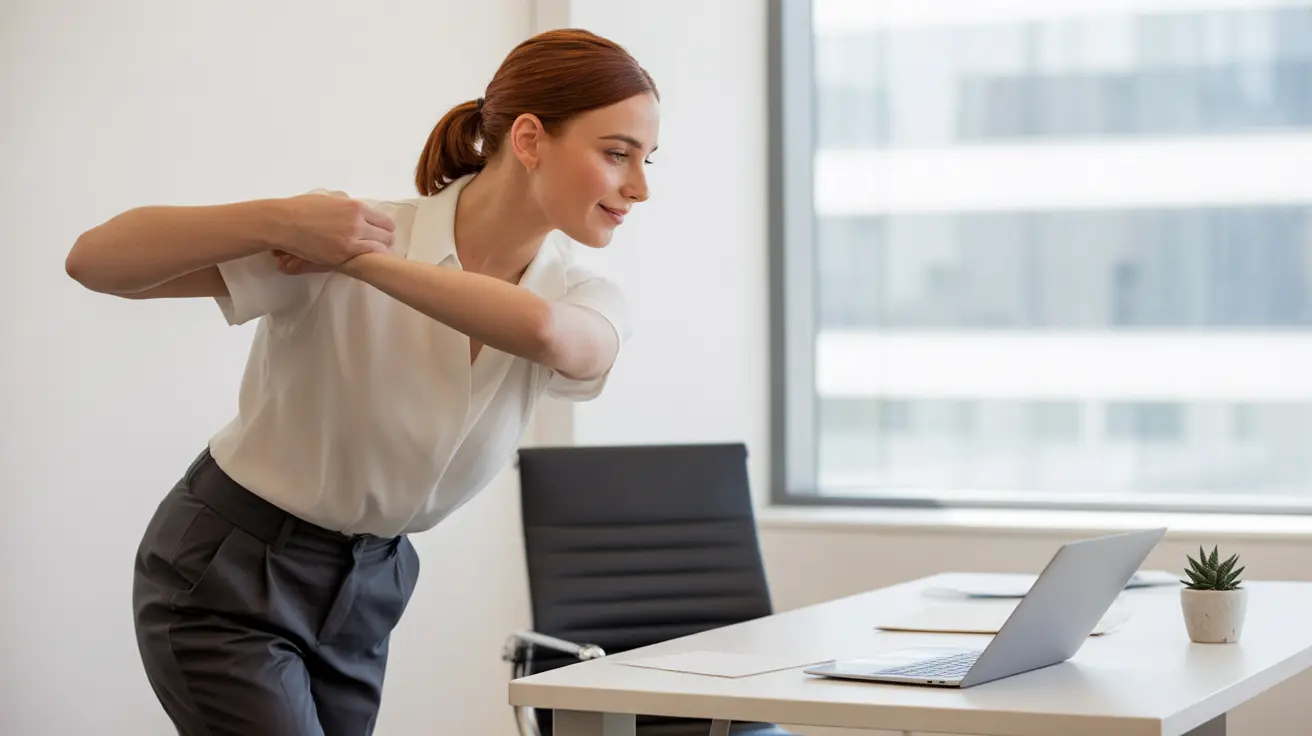Feeling drowsy at work can significantly impact your productivity and well-being. Whether you're dealing with an afternoon slump or struggling to stay alert during important meetings, knowing how to get rid of sleepiness instantly can make a crucial difference in your workday performance.
In this comprehensive guide, we'll explore proven strategies to combat workplace fatigue quickly and effectively, helping you maintain optimal alertness throughout your day.
Immediate Actions to Combat Workplace Sleepiness
Quick Physical Activities
Movement is one of the most effective ways to shake off sleepiness instantly. Try these rapid-acting techniques:
- Stand up and stretch every 30-60 minutes
- Do desk exercises like shoulder rolls and leg extensions
- Take a brisk 5-minute walk around the office
- Perform gentle neck rotations and arm circles
- March in place for 30 seconds
Environmental Adjustments
Your workspace environment can significantly impact your alertness levels. Make these instant changes:
- Increase exposure to natural light or bright office lighting
- Adjust room temperature to slightly cool (around 68-72°F)
- Ensure proper ventilation with fresh air
- Organize your desk to promote better focus
- Use an essential oil diffuser with energizing scents like peppermint or citrus
Strategic Consumption for Quick Energy
Smart Caffeine Usage
While caffeine can be an effective tool for combating sleepiness, timing and amount are crucial:
- Limit coffee intake to 200-400mg of caffeine per day
- Time your coffee breaks strategically before important tasks
- Consider green tea as a gentler alternative
- Stay hydrated with water alongside caffeinated beverages
- Avoid caffeine late in the day to prevent sleep disruption
Energizing Snacks
The right foods can help maintain steady energy levels throughout the day:
- Fresh fruits for natural sugars
- Nuts and seeds for protein and healthy fats
- Greek yogurt with berries
- Whole grain crackers with hummus
- Dark chocolate (70% or higher cacao)
Long-term Prevention Strategies
Sleep Hygiene Improvements
Preventing daytime sleepiness starts with better nighttime habits:
- Maintain a consistent sleep schedule
- Create a relaxing bedtime routine
- Limit screen time before bed
- Ensure your bedroom is dark and cool
- Invest in a comfortable mattress and pillows
Lifestyle Modifications
Making these changes can help prevent chronic daytime fatigue:
- Regular exercise (preferably in the morning)
- Balanced nutrition with regular meal times
- Stress management techniques
- Regular health check-ups
- Adequate daily water intake
Frequently Asked Questions
What are the fastest ways to get rid of sleepiness instantly at work?
The fastest ways include standing up and moving around, exposure to bright light, doing quick exercises at your desk, and splashing cold water on your face. These physical activities can increase blood flow and boost alertness within minutes.
How does caffeine help to reduce sleepiness and improve alertness quickly?
Caffeine blocks adenosine receptors in the brain, preventing drowsiness and promoting wakefulness. It typically takes 15-45 minutes to feel the full effects, which can last for several hours.
Can taking a short nap really make me feel less sleepy right away?
Yes, a 10-20 minute power nap can provide immediate relief from sleepiness. However, avoid napping longer than 30 minutes, as this can lead to sleep inertia and make you feel groggier.
What lifestyle habits can help prevent daytime sleepiness during work hours?
Key lifestyle habits include maintaining a consistent sleep schedule, regular exercise, proper nutrition, staying hydrated, and managing stress levels. These habits work together to promote better energy levels throughout the day.
When should I see a doctor about persistent daytime sleepiness despite using quick fixes?
Consult a healthcare provider if you experience persistent daytime sleepiness for more than two weeks despite good sleep habits, or if sleepiness significantly impacts your daily activities. This could indicate an underlying sleep disorder or health condition requiring medical attention.




